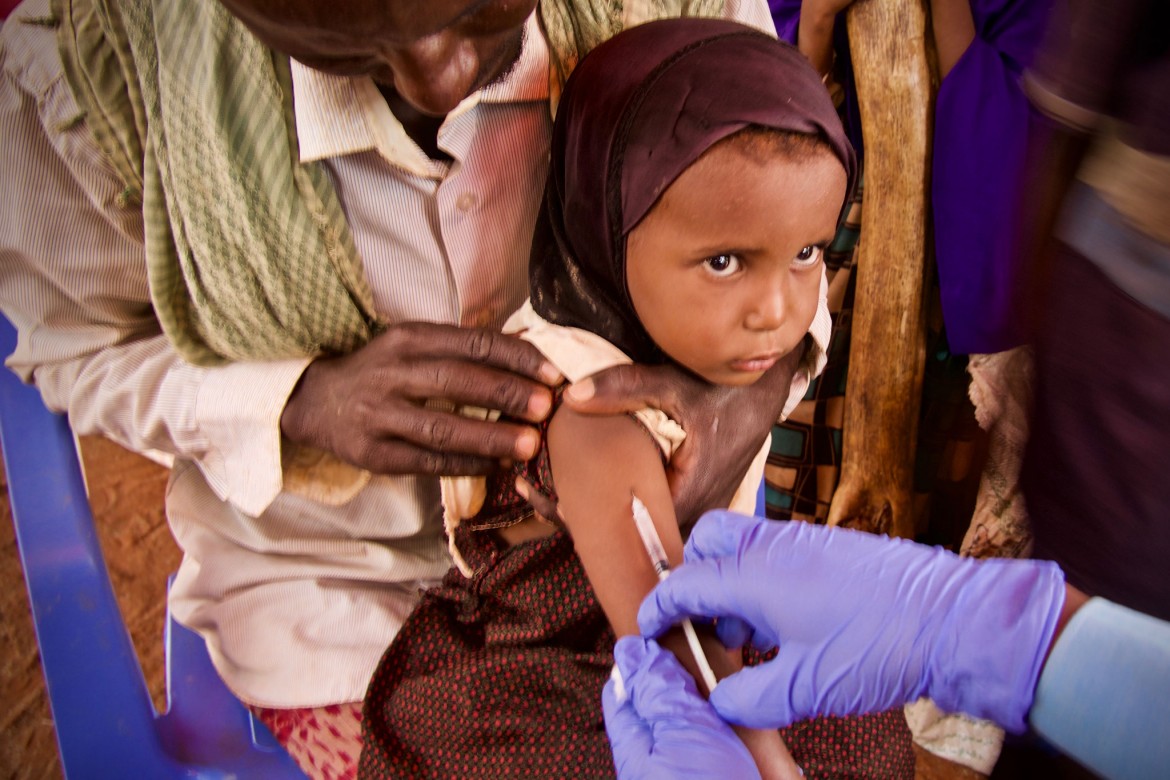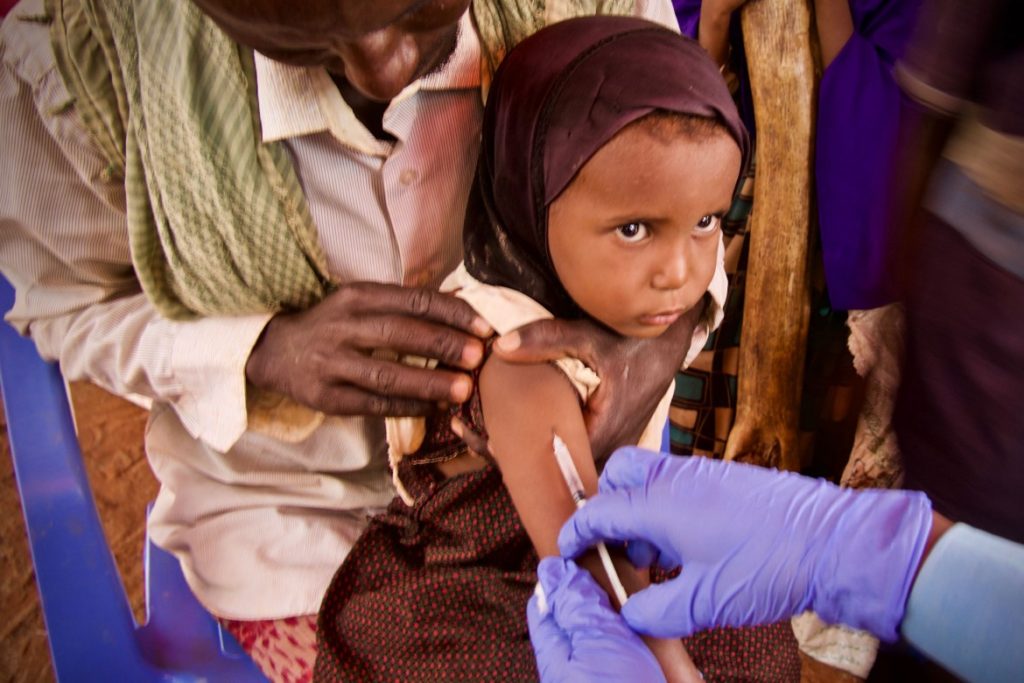WHO appeals for $14 m to roll out nationwide measles campaign in Somalia


The World Health Organisation has appealed for $14.4 million to roll out a nationwide measles vaccination campaign in Somalia warning millions of under-vaccinated children are at a risk of contracting the disease if not vaccinated in time.
The UN body said Wednesday in a statement it was planning to launch a vaccination campaign nationwide in November this year targeting 4.2 million children but is yet to receive any funding. It noted that Somalia was currently facing its worst measles outbreak in four years with over 14, 823 suspected cases reported in 2017 as of July 31 compared to between 5000 and 1000 cases per year since 2-14.
“In order to contain the outbreak, a nationwide campaign is planned for November 2017 to stop transmission of the disease, targeting 4.2 million children. The campaign will also intensify efforts to strengthen routine immunization and reach unvaccinated children to boost their immunity,” WHO said.
It added, “US$ 14.4 million (a cost of US$ 3.36 per child) is required by WHO and health partners to conduct the measles vaccination campaign in November 2017, of which WHO required US$ 6.8 million. To date, no funding has been received.”
WHO and partners vaccinated almost 600,000 children aged between 6 months and 5 years for measles in hard to reach and hotspot areas across the country in early 2017. “Despite these efforts, the transmission of measles continues, compounded by the ongoing pre-famine situation, continued mass displacement, and undernourished children living in unhygienic conditions,” the global body said.
WHO representative in Somalia Dr. Ghulam Popal said though diseases such as cholera and measles are easily treatable and preventable, the current drought hitting most parts of the country make it difficult as it has exposed millions into a vulnerable state.
“Somalia is facing one of the worst humanitarian crises in the world. Millions of people, already on the brink of famine, are now at risk of rapidly spreading infectious diseases like cholera and measles. Normally, these diseases are easy to treat and prevent, but they can turn deadly when people are living in overcrowded spaces and are too weak to fight off infection,” said Dr Popal.
WHO has also been conducting intensive vaccination campaigns against cholera which its records indicate 76,236 cases as of July 31 this year and 1157 deaths.
“Between March and May 2017, WHO and partners conducted Somalia’s first national oral cholera vaccination (OCV) campaign, and successfully reached over 826 000 vulnerable people with two doses of OCV,” WHO said.